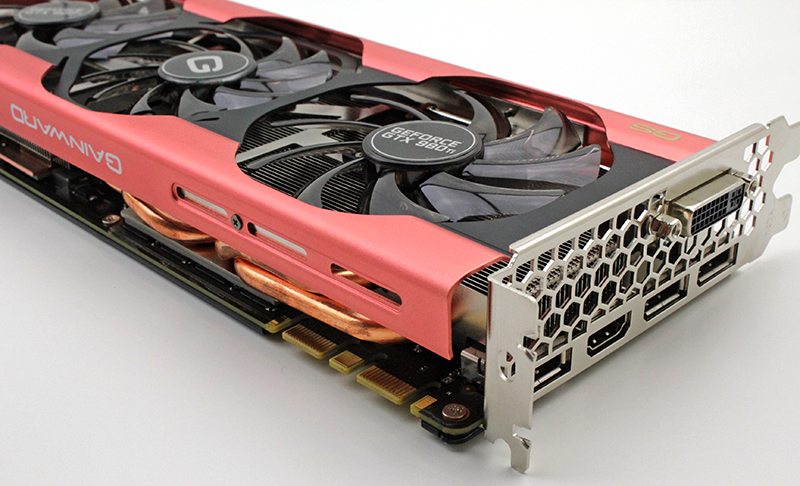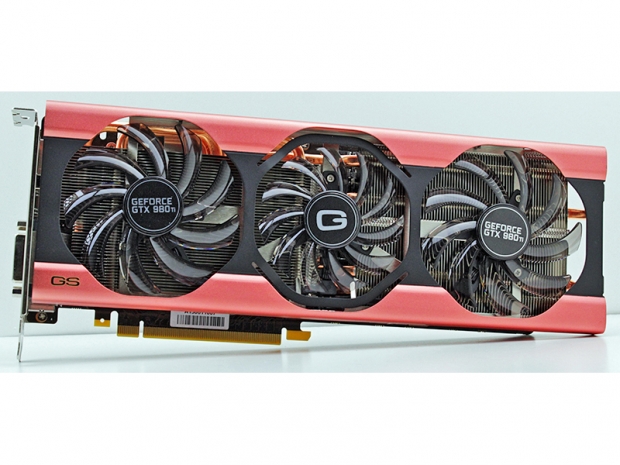Index
A closer look at Phoenix GS continued
The Phoenix card is 292mm long (267mm reference board) and 112mm tall. The metal shroud looks nice. It is open on all sides and the openings serve as exhaust vents. We always advise users to clean the heatsink regularly. It’s good for the card and it also helps keep fan RPMs as low as possible. Accessing the heatsink is relatively easy. You can remove the shroud simply by undoing four screws that keep it attached to the heatsink.
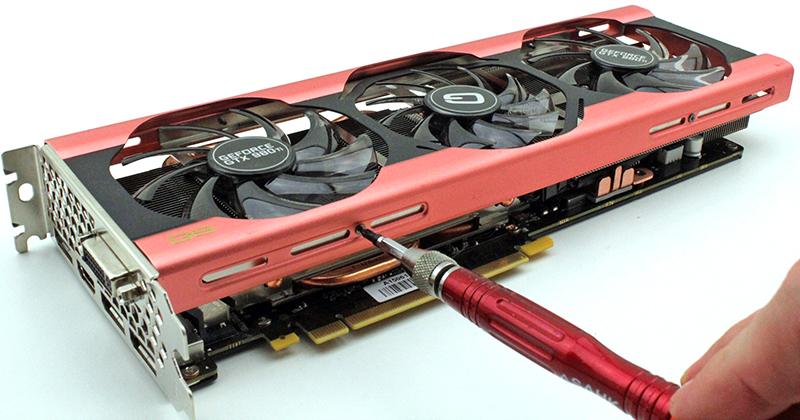
The fans are attached directly to the heatsink, each fan with three screws.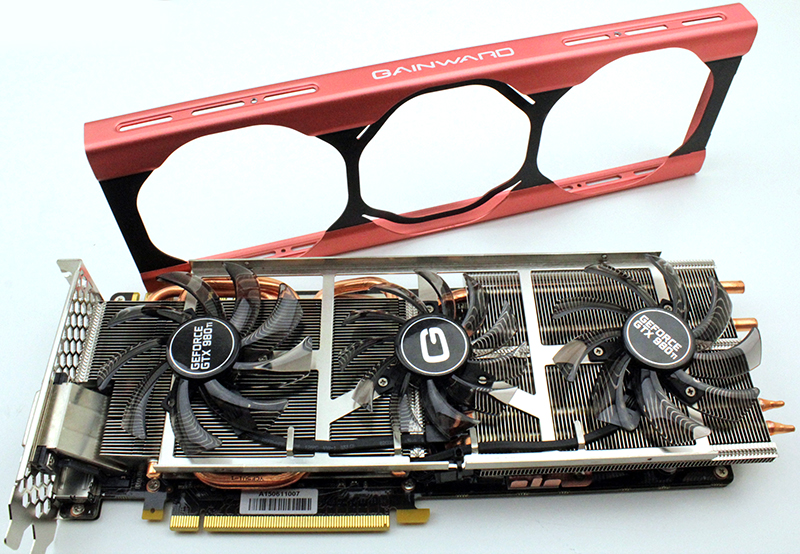
Power Logic fans are chosen due to its dense, curved blade design.
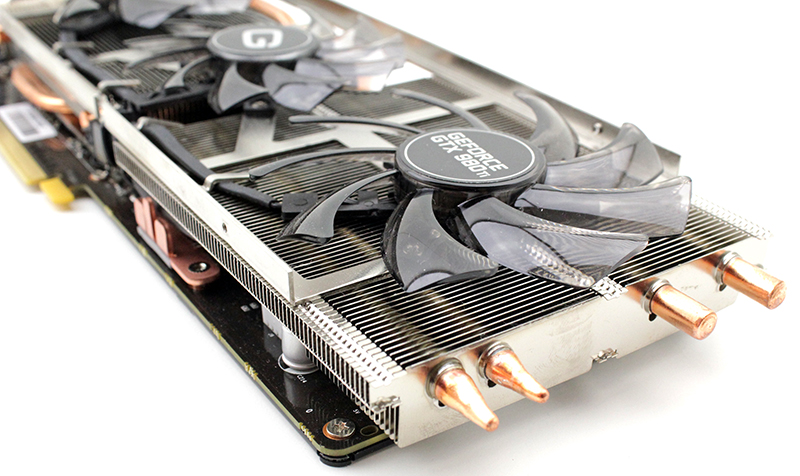
Here you can see the heatsink. Everything feels solid and precise.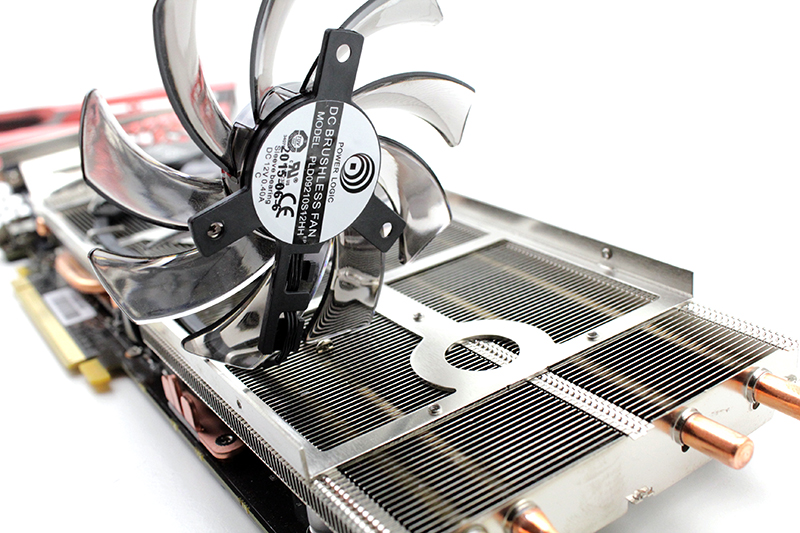
The Phoenix cooler has unusual heatsink design. It is made longer than the PCB to maximize dissipation surface. We have never seen the fins of the left part of the heatsink positioned differently from the right heatsink. But as long the performance is good we dont mind it.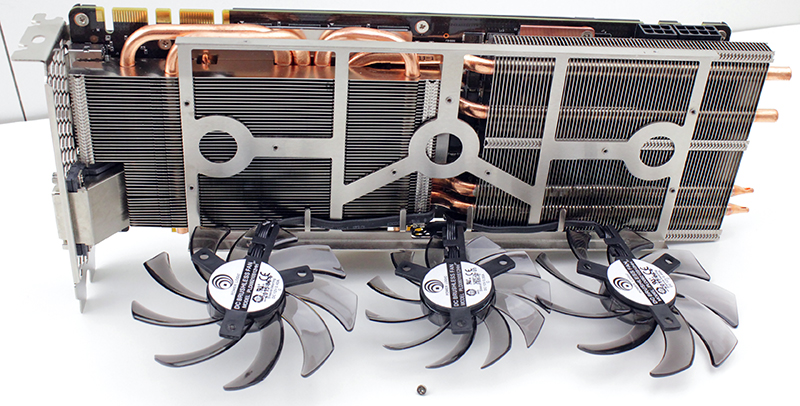
All the fans are connected using a single 4-pin connector, and fan RPM can be regulated via different tools, like Gainward’s own EXPERTOOL.
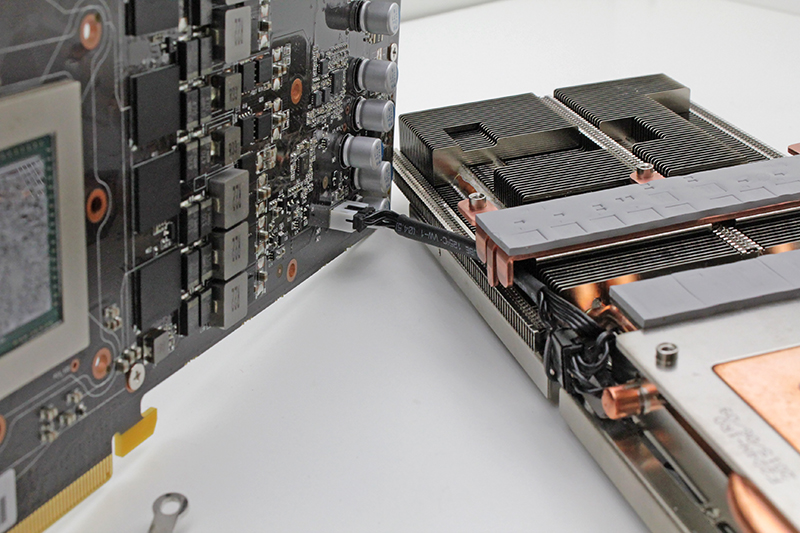
There is no need to remove the entire cooler but we removed it to show the PCB. Note that removing the whole heatsink will void warranty.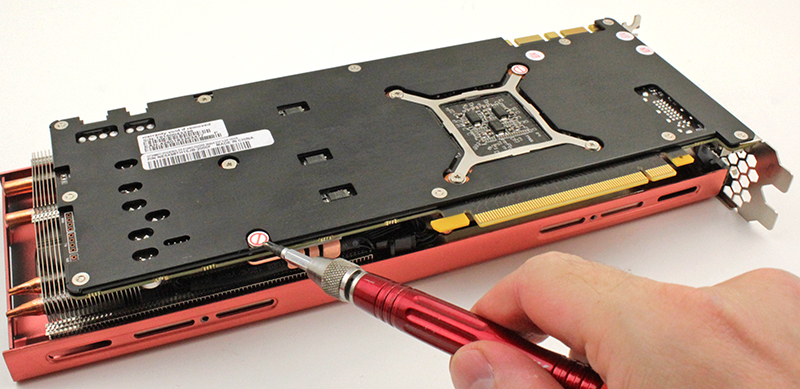
The VRM heatspreader is made from copper and it is soldered directly to the main heatsink which improves heat dissipation.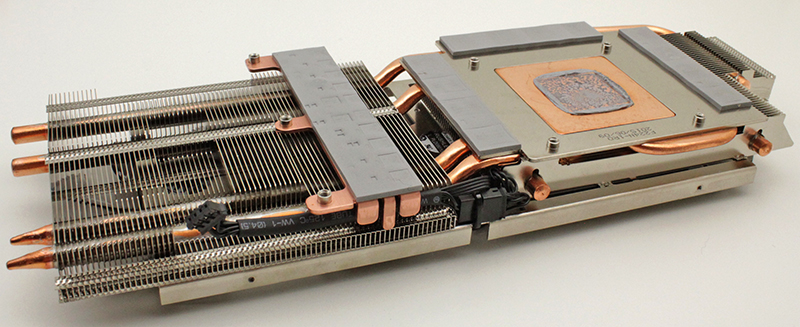
The Phoenix cooler comes with elaborate heatpipe system.

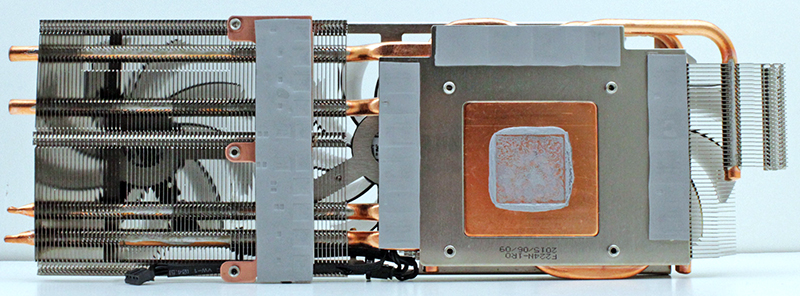
The PCB looks a lot like the reference GTX 980 Ti board. There are only small changes in the layout. This design includes six phases +2 power supply with DrMOS for GPU core and two phases power supply for graphics memory that helps supply enough fuel to the 3D graphics engine and memory chips. Those six phases +2 PWM for those 2816 cores dynamically balance current loading for each phase to maximise the efficiency and stability the voltage level, the overall efficiency can be improved. The choke noise and EMI noise also be reduced.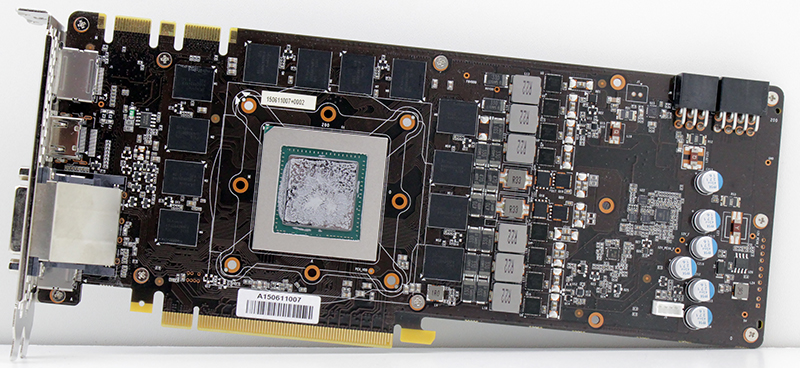
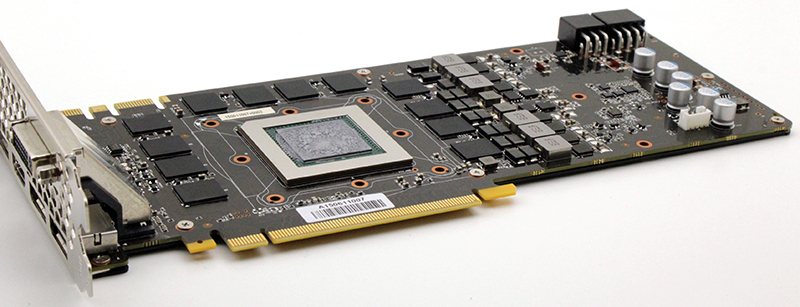
The card uses an OnSemi NCP81174 voltage controller. The same controller is used for the GTX 980 Ti reference design.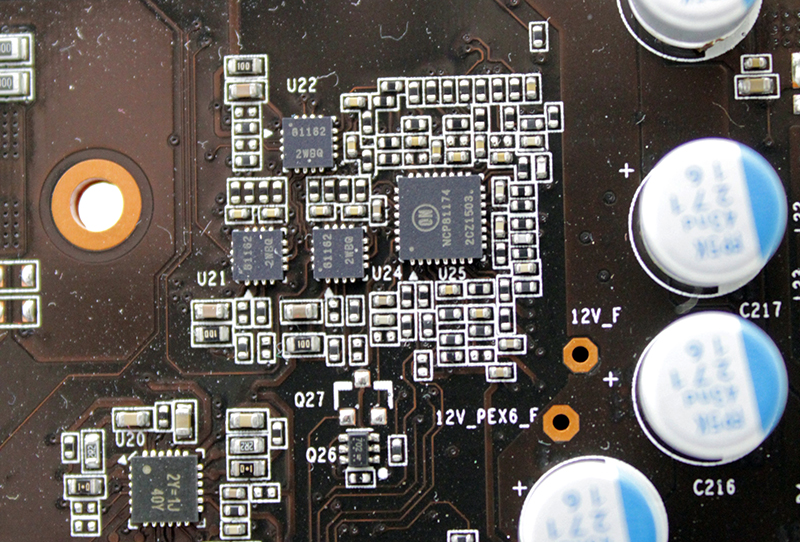
The card has 6GB of GDDR5 memory. The SK Hynix chips, (model H5GQ4H24MFR-R2C) are specified to run at 1750 MHz (7000 MHz GDDR5 effective). All the memory modules are located at the front of the PCB, in the vicinity of the GPU.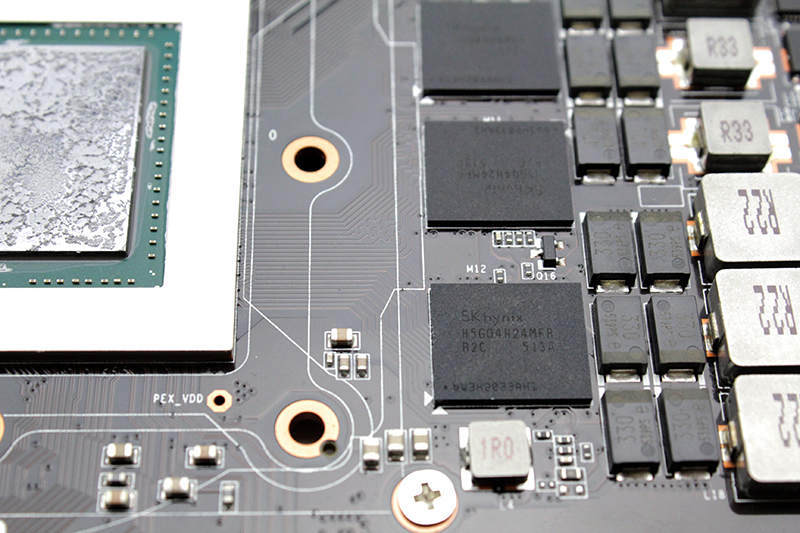
The reference Geforce GTX 980 Ti comes with three DisplayPort, single HDMI (version 2.0 which enables 4K content at 60Hz in full 444 RGB colorspace) and single dual-link DVI display outputs. The Gainward GTX 980 Ti Phoenix Golden Sample card has the same configuration of video outputs. Four video outs can be used at the same time.
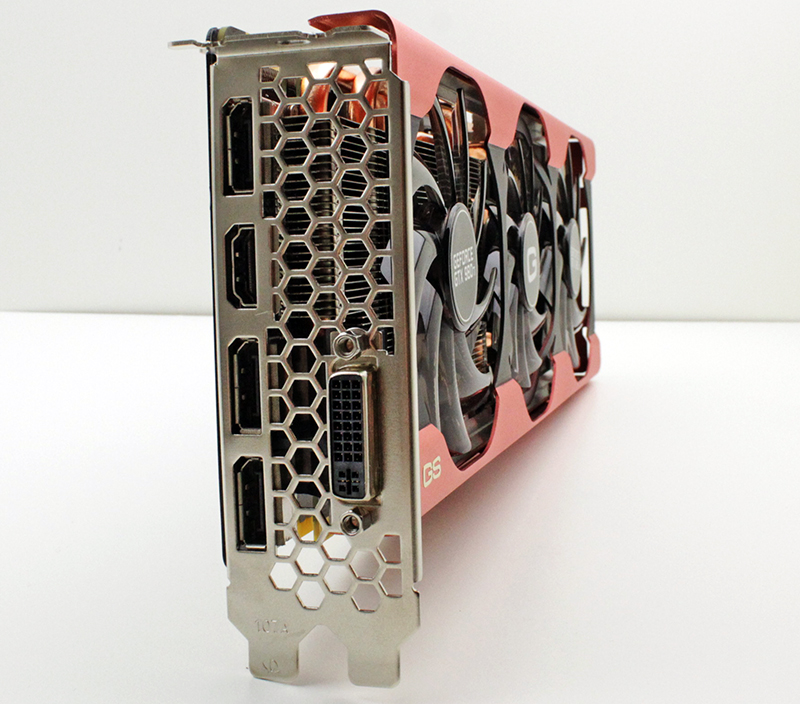
Like the reference card the new Phoenix also needs 8+6-pin PCI-Express power connectors.
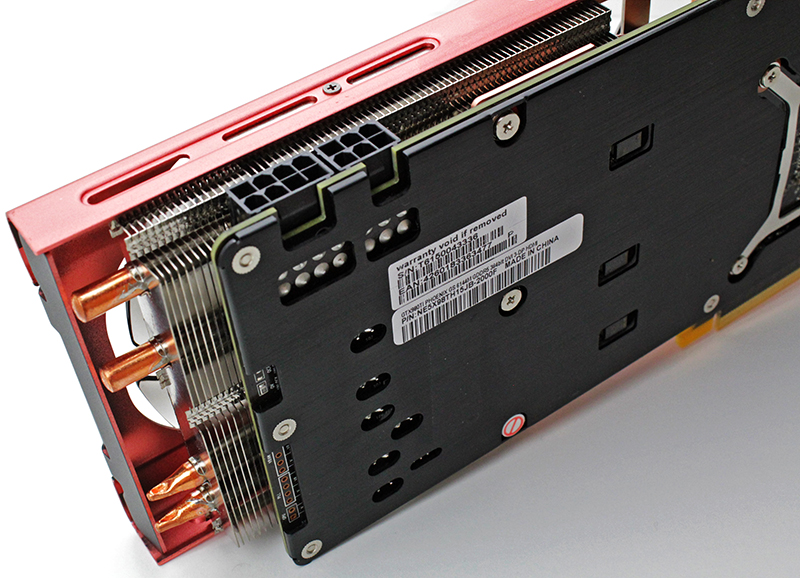
The GTX 980 Ti Phoenix Golden Sample is ready for multi-GPU action, be it in standard two-card SLI, or 3-way and 4-way SLI. It features two SLI connectors.